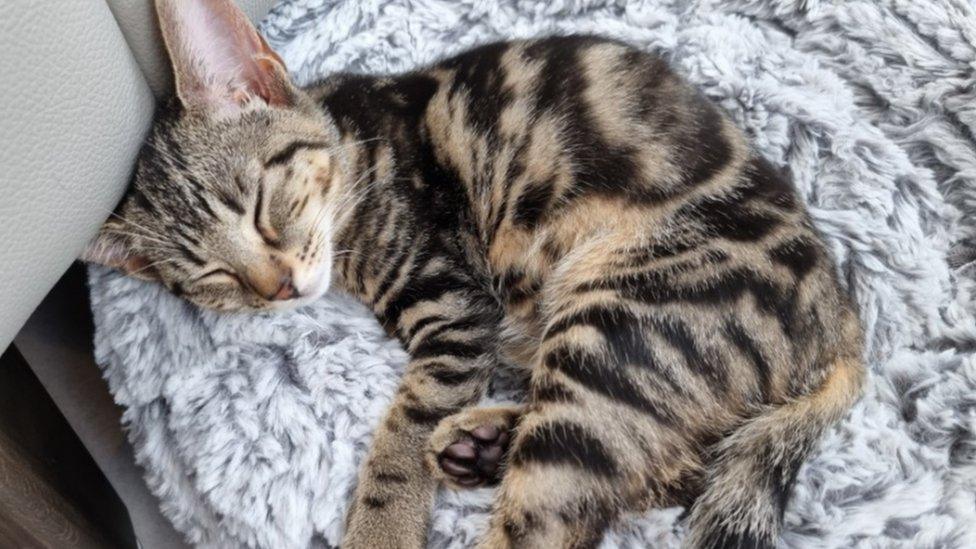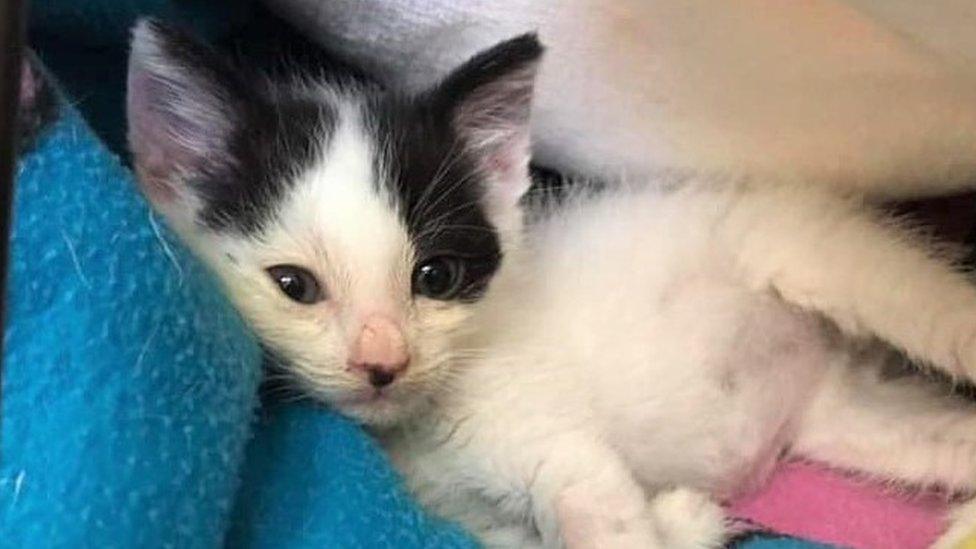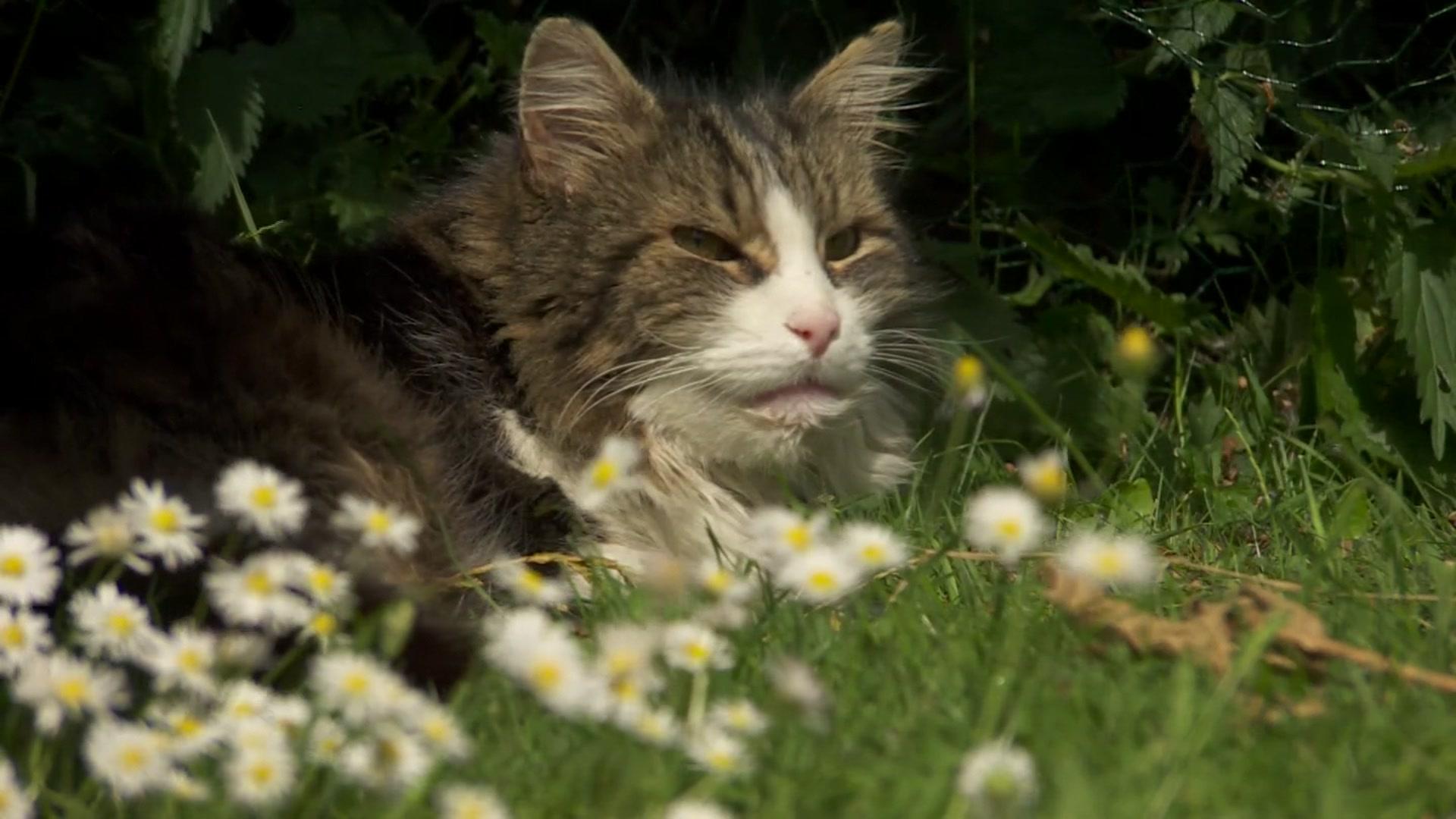Wakefield kitten born without an anus saved in emergency operation
- Published

Toulouse (left) and sister Mia are now four months old and doing well
A kitten given little chance of survival after he was born without an anus has been saved thanks to a vet carrying out a life-saving operation.
Toulouse the tabby was unable to defecate so his owner took him to the vets in Wakefield, West Yorkshire, and the grim diagnosis was made.
Given just hours to live, vet Chris Coutts carried out a rare surgical procedure to give him a new bottom.
Now four months old, it is hoped Toulouse will lead a normal life.
His owner, Nadia Kleisa, said the kitten and his sister Mila seemed to be settling into their new home, but she soon realised Toulouse was having problems.
When he did not improve overnight, she took him to Vets4Pets in Castleford where Mr Coutts told her he had a 1% chance of survival due to the genetic fault which had caused his condition.
"We felt devastated that our beautiful kitten was unlikely to survive," she said.
"But, within two hours Chris called us to offer a small ray of hope. He explained that he'd looked into the condition and was happy to try and save Toulouse with a unique operation.
"He explained the risks, but without the operation he wouldn't have survived so we immediately agreed."

Toulouse was given just hours to live when he was first diagnosed
The operation, carried out at the end of April, involved creating a new anus for Toulouse, and attaching his colon to it.
Just hours later, Toulouse was well enough to be taken home.
Toulouse was only the second case of this condition Mr Coutts had seen in more than 28 years of practising.
He advised the kitten have a diet of white fish, chicken and scrambled egg and within 36 hours Toulouse managed to pass a stool.
Ms Kleisa said she and her partner, Tom Hooper were so relieved and "couldn't stop smiling".
Mr Coutts said: "The operation itself was very tricky given Toulouse was still a small kitten and it was most certainly a team effort to get it done.
"Luckily it all went very well.
"One of the remarkable things from this condition is we're still unsure of Toulouse's sex, although we do think he's male."
Toulouse will now play a part in research to find the faulty gene that caused his life-threatening condition.

Follow BBC Yorkshire on Facebook, external, Twitter, external and Instagram, external. Send your story ideas to yorkslincs.news@bbc.co.uk, external.
Related topics
- Published17 June 2021

- Published15 June 2021

- Published3 July 2021
